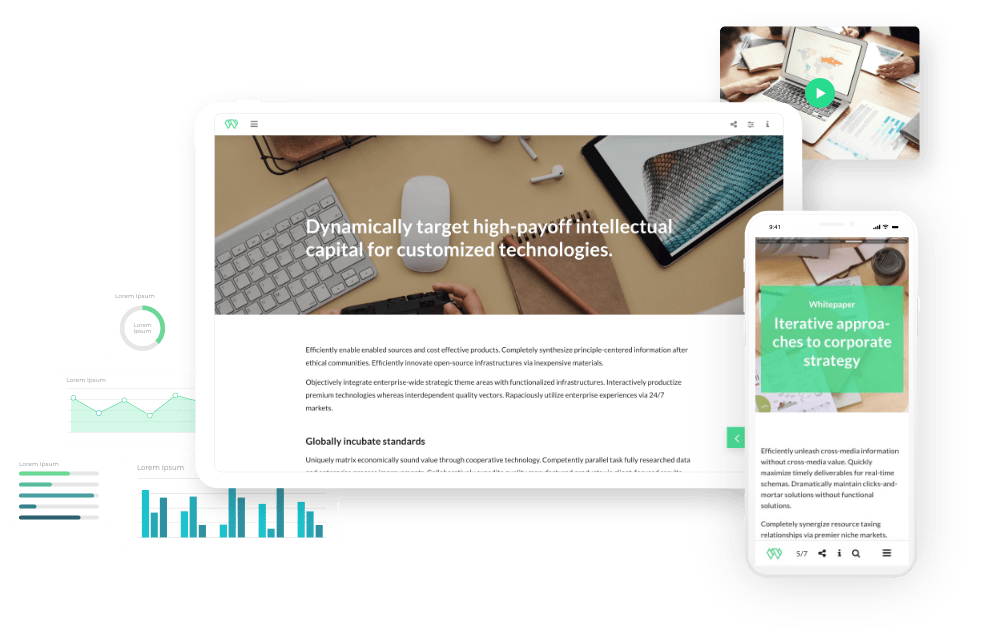Digital white paper features
High-quality leads with targeted content — without a PDF
PDFs are not suitable for white papers — unknown content versus contact details, not mobile readable, no lead generation in the content. It's better — with Webmag.
Lead barriers before or in the white paper
Connection to CRM, marketing and analytics systems


























